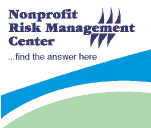|
March 26, 2008
Doing Good or Doing Business — Or Both?
Whether it’s a nonprofit acting like a for-profit, or a for-profit acting like a nonprofit, to survive in today’s environment both nonprofits and for-profits are borrowing ideas from each other. For-profits are eager to appear “mission based” to consumers who may be more likely to purchase products that claim to be supporting charitable causes. Nonprofits are eager to fashion their operations along the lines of successful businesses in order to compete in the open marketplace for dollars—and donors. Whether it’s revenue from a license agreement with a for-profit, or starting a local business to provide specialized services in the community, nonprofits are supplementing their income as well as their missions by engaging in all sorts of business transactions. What if a business venture does not necessarily dovetail with the nonprofit’s current mission? Is that allowed? Perhaps, as long as the commercial unrelated activity does not dominate the nonprofit’s activities and overshadow its charitable focus. Income received from such activities may be taxable, even if the income is used to support the nonprofit’s mission.
Most nonprofit leaders are familiar with unrelated business income and whether or not it is taxable (“UBIT”), but what about the risks of engaging in commercial activity that have nothing to do with generating income and incurring UBIT—such as partnering with (or being sponsored by) a for-profit that has a marketing style that is not consistent with the nonprofit’s values? Should your nonprofit endorse a particular product just because it provides assistance to those your nonprofit serves? Does your nonprofit conduct due diligence before accepting corporate donations or agreeing to partner with a business in the community? What if the business is owned by a family member of a board member, but no one batted an eye?
Commercial activities offer many rewards—and also present a wide range of possible risks. Wouldn’t you rather know what the risks are, before you sign on the dotted line? To participate in a frank and interactive discussion of these issues, plan to join us for our monthly Webinar series on Wednesday, April 2nd at 2 pm EST to explore Risks of Generating Revenue: Charities Doing Good or Doing Business?
If you’re not able to participate in the Webinar or download the program after it has concluded, feel free to access our free technical assistance service and call us for help at (202) 785-3891. As an alternative, click on the ADVICE tab on our web site and select Technical Assistance. A simple form allows you to submit your question to our staff experts. We’ll provide an answer within 48 hours.
Need help identifying what procedures and policies are helpful to reduce risks of revenue-generating activities at your organization? The Nonprofit Risk Management Center offers consulting services including risk assessments, as well as policy review and development, all at affordable rates. For more information, please contact Jennifer Chandler Hauge at (202) 785-3891.
Are you new to fundraising? Or concerned about a special event you are planning or just want a refresher on the risks related to fundraising activities? The Center offers the following publications:
Your Questions Answered by the Center’s Staff
Our Favorite Recent TA Question — We’ve selected our favorite recent technical assistance question (and our answer) to feature in this and future editions of the Center’s eNews. If you have a question, just go to our web site, www.nonprofitrisk.org, click on the ADVICE tab and select “Technical Assistance.” A simple form allows you to submit your question to our staff experts. We’ll respond within 48 hours and you can look for your question in a future eNews!
Q: Can we enforce our “professional attire” dress code with an employee who has visible tattoos by asking him to cover them with his clothing?
A: Nonprofits are conscious of their image and entitled to enforce “professional dress” policies just like any other business. However, the risk in enforcing such a policy without engaging in a discussion with the employee is that the employee may claim that his/her costume/dress stems from a religious belief or practice. Title VII requires employers to accommodate employees’ religious beliefs. EEOC guidelines clarify that religious practices include moral or ethical beliefs that are “sincerely held.” Consequently, if an employee’s tattoos are part of his or her religious beliefs, the employer has an obligation to engage in a dialogue with the employee to explore whether there is an accommodation that does not pose an undue hardship on the employer. In some cases asking an employee to cover his tattoos may be appropriate—in others the facts and circumstances may require the nonprofit employer to revise its dress code policy. The key is not to enforce dress code policies without engaging in a dialogue with the employee and exploring both the nature and basis for the employee’s costume/dress as well as the impact of possible accommodations.
|


